
In 1945, at Freeman Field officers of the African American 477th Bombardment Group challenged the unlawful exclusion of blacks from officers’ club, resulting in their arrest. The uprising immediately gained the attention of the War Department, NAACP, and lawmakers such as Senator Arthur H. Vandenberg. The refusal of more than 100 black officer’s to comply with “Jim Crow” policies underlined the broader push for civil rights in the World War II era.
America’s involvement in WWII exposed the great disparity between the fight for freedom abroad and the treatment of African Americans at home. In 1945, The Pittsburgh Courier alleged that it was difficult to understand how President Harry S. Truman’s administration “can claim to be prosecuting a war to bring democracy to all of the world when it will not enforce its own orders supposedly establishing democracy in its own country.” Similarly, Hoosier businessman and Republican presidential nominee Wendell Willkie expressed concern with the treatment of African Americans in the Armed Forces. In his 1944 article “Citizens of Negro Blood” for Collier’s Magazine, Willkie stated that World War II “has made us conscious of the contradictions between our treatment of our Negro minority and the ideals for which we are fighting. The equitable treatment of racial minorities in America is basic to our chance for a just and lasting peace.” Roberta West Nicholson, Indiana state legislator and daughter-in-law of Hoosier author Meredith Nicholson, worked with the Indianapolis Servicemen’s Center during WWII and observed the same type of discrimination at Camp Atterbury. She successfully fought for black servicemen’s rights to utilize the exact same amenities and recreational facilities as their white counterparts, lamenting “It’s difficult to believe, but this is true; because the Army itself was segregated.”
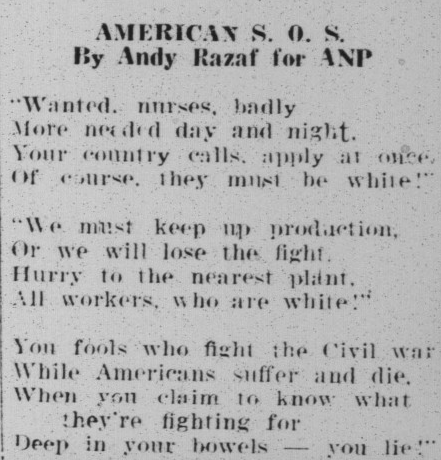
Discrimination forced African Americans to fight to even be admitted to the Army Air Corps, which was an exclusively white organization until the late 1930s. According to James Allison’s “Mutiny at Freeman Field,” with the outbreak of global war, the Army revised its policy and recruited black units, but kept them segregated from white counterparts. The Air Corps sponsored flight schools for African Americans due to pressure from Congress and NAACP leaders, but accepted none of their graduates, despite exemplary records. Allison noted that “Countervailing pressures from politicians seeking the black vote and enterprising blacks who threatened to sue resulted in an Air Corps decision to form an African American fighter squadron” in 1941. The squadron, designated the “Tuskegee Airmen,” was trained at Alabama’s Tuskegee Field and produced a formidable combat record.
Unlike the Tuskegee squadron, the 477th Bombardment Group was trained at a base in Seymour, Indiana that included white servicemen. The group was first established at Selfridge Field near Detroit, under the command of white officer Colonel Robert W. Selway. The group was transferred to Kentucky’s Godman Field as the result of racial tension and protest similar to that which later occurred at Freeman Field. The 477th was then moved to the Freeman Field air base in March 1945 to train with better facilities. The Indianapolis Recorder noted in April that:
Arrival of the group here stimulated open hostility on the part of tradesmen in the nearby town of Seymour . . . Most of the trades people announced they would furnish no service or sell commodities to the new arrivals at Freeman Field. Negro residents of Seymour, less than 100 in number, are striving valiantly to meet the needs of the soldiers.
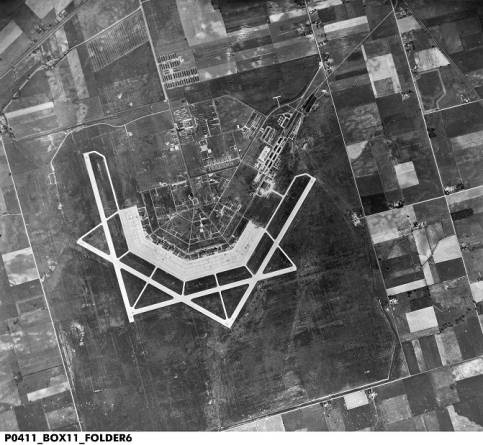
These men, many of whom were awarded the Distinguished Flying Cross and Purple Heart, encountered racial discrimination from white servicemen at Freeman Field. Little had changed regarding their treatment since WWI, during which African American entrepreneur Madam C.J. Walker and her sales agents wrote a letter to President Woodrow Wilson officially condemning the mistreatment of black troops. According to the Recorder, African American officers at Freeman were denied entry into the air base’s tennis courts, swimming pool, and “swanky” officer’s club after 5 p.m. by Officer Selway, who created a “superficial classification that prevented their enjoyment of facilities established for commissioned personnel.” This classification violated Army Regulation 210-10, which prohibited the racial segregation of officers at army camps. According to Allison, black officers mobilized to challenge the discriminatory action, meeting in hangars to plan a peaceful protest.

On April 5, 1945, Selway learned of the plan and ordered a provost marshal to guard the club and turn away black servicemen. At the end of the night, 61 officers were arrested for attempting to enter the club, three of whom faced a jury in July for “jostling a provost marshall [sic].” On the 7th and 8th, more officers were arrested for attempted entry of the club. In a move that could further institutionalize segregation, Selway pressured black officers to “sign a statement that attested to their understanding of the order that had established one club for trainees and the other for supervisory personnel” (Allison). Officers were read an Article of War threatening death for failure to obey command and then issued a direct order to sign. Undeterred, 101 officers refused to sign and were subsequently arrested and sent back to Godman Field. According to Historian Emma Lou Thornbrough, a commander of a local black American Legion Post asserted “Blacks must wage two wars-one against the Axis powers, the other for full citizenship at home.” The Freeman Field officers did just that.
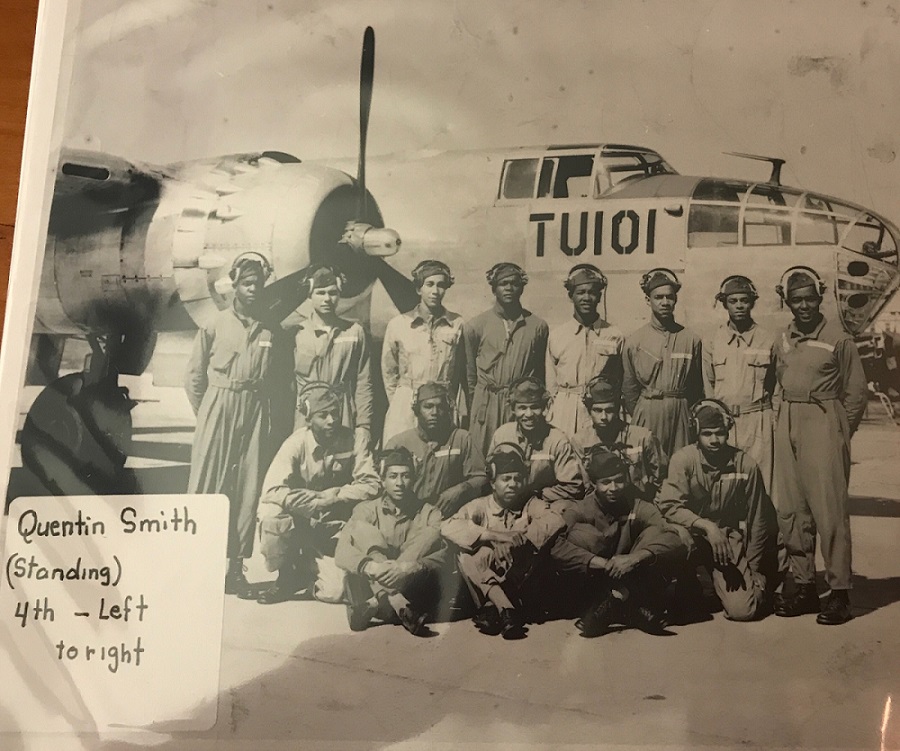
First Lieutenant Quentin P. Smith was among those who refused to sign and recalled “‘I thought, ‘Oh my God this can’t be happening . . . He had given me a direct order to sign. I had finished college and all I had to do was just stay alive and I’ll be a general. I had no voice then'” (1992, Merrillville Times). After refusing to sign, he was escorted to his barracks at gunpoint and held under arrest for twelve days. In a document endorsed by Smith on April 25, he contended “The cited regulation appeared and still appears to be a ‘Jim Crow’ regulation” and that he:
could not, and cannot understand how Medical Officers, qualified as Flight Surgeons and having completed all required Army medical training and having completed years of private medical practice could have been classified as ‘trainee’ personnel unless the distinction were solely one of color.
He added he wished to indicate “his unshakeable belief that racial bias is Fascistic, un-American, and directly contrary to the ideas for which he is willing to fight and die.”
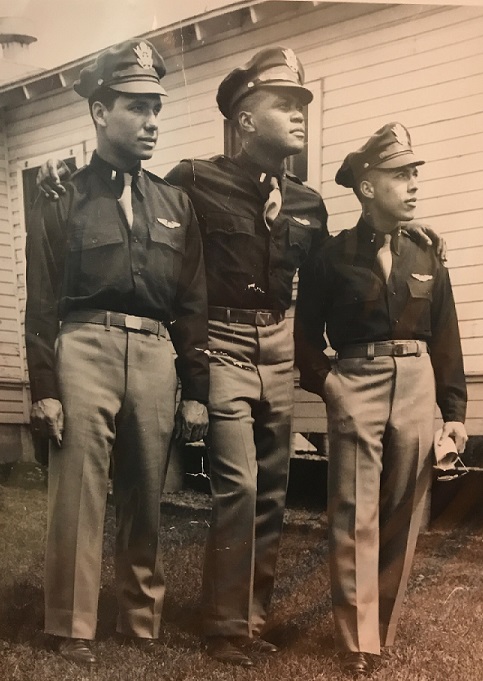
The Recorder reported that “The mass arrest which is believed unprecedented in the history of the Army has this post in an uproar and has disrupted the entire training program of the 477th Bombardment group.” By the 26th, it appeared that the uprising was beginning to influence Army policy, as the newspaper noted that “Officials of the Public Regulations Bureau of the department in Washington admitted momentous changes are being considered as result of an investigation of conditions surrounding” the incident. On April 28, The Pittsburgh Courier called for the immediate release and “return to duty” of the arrested men and that “Anything less will be a travesty on justice.”
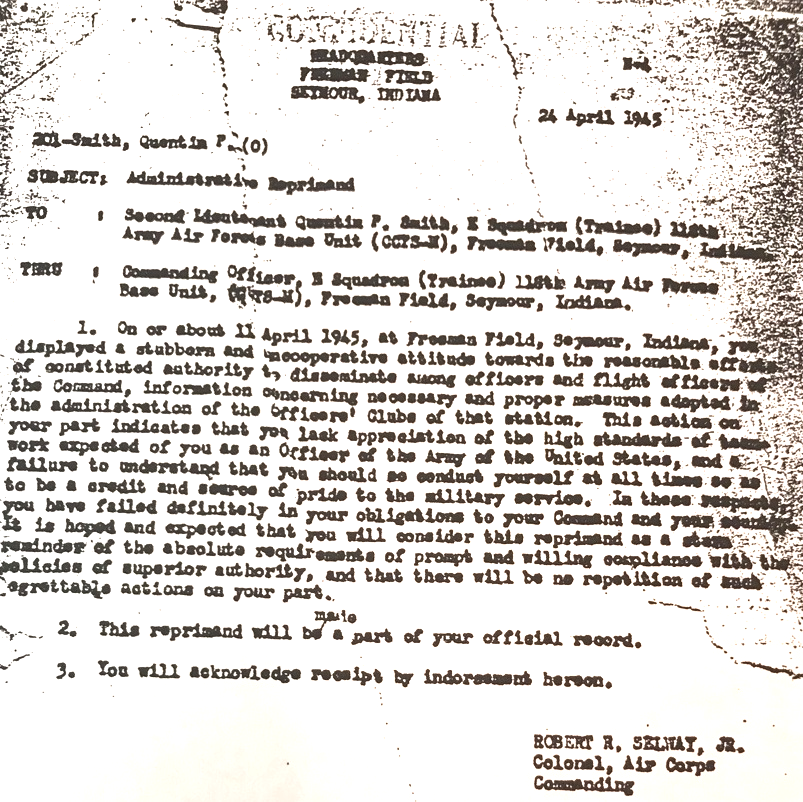
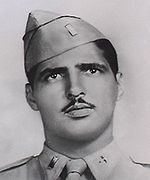
Following public outcry and the efforts of the NAACP, all were released and served with an administrative reprimand, with the exception of three men. The Recorder noted on June 30, that Selway had been replaced with African American Colonel B.O. Davis Jr. However, the three men arrested for “jostling” an officer continued to be confined and were prohibited from obtaining counsel. In July, a jury acquitted Lt. Marsden A. Thompson and Lt. Shirley R. Clinton of “disobedience of a direct order,” along with Lt. Roger C. Terry, although he was found guilty of “jostling” an officer and forced to pay $150. In 1995, the Air Force set aside Terry’s conviction. In an Indianapolis Star article, Terry declared that this removed the weight he had been carrying since the ordeal and that “What came off my back was that all my hatred went away. All of it.”
Although their military records remained tarnished until the 1990s, non-violent protests, as well as the violence against returning black servicemen, likely influenced President Truman’s decision to desegregate the armed forces on July 26, 1948. In negating Terry’s conviction, former assistant secretary of the Air Force concluded that the Freeman mutiny was crucial to military integration and a “‘giant step for equality.'”
